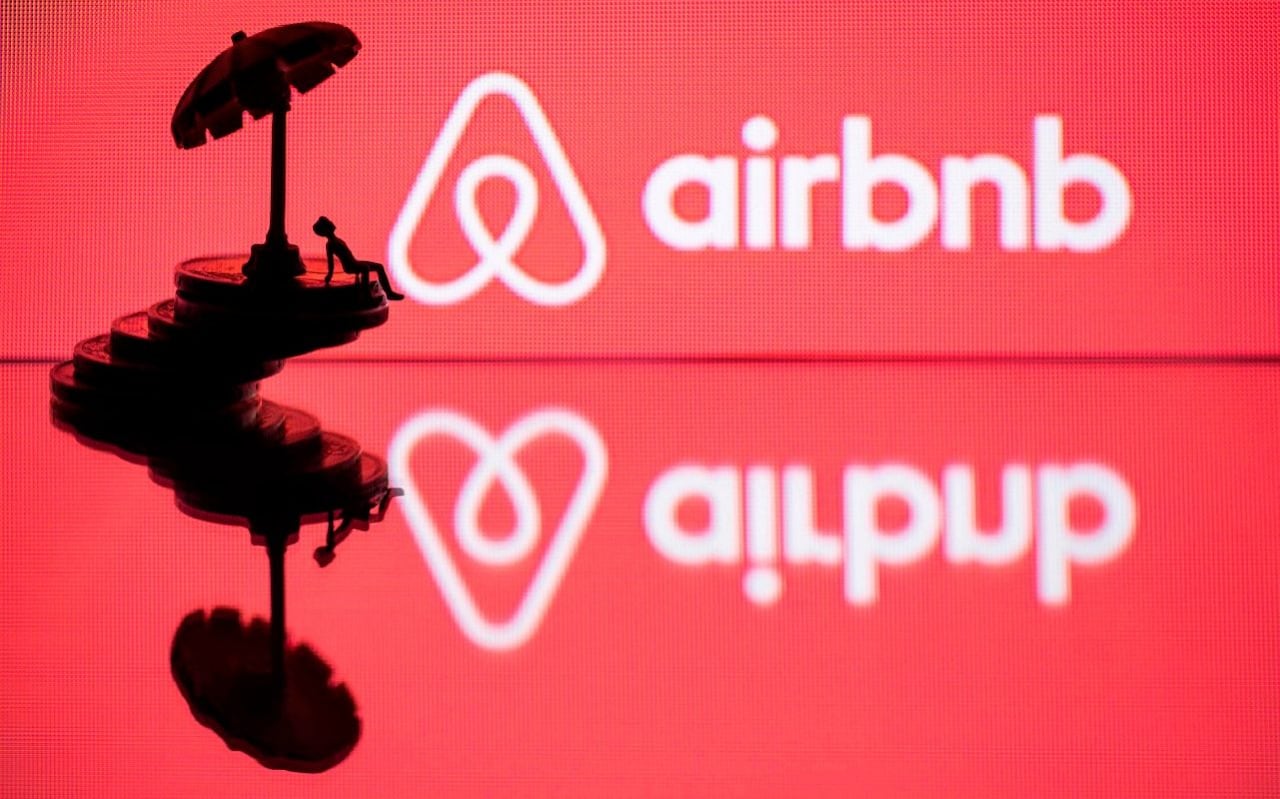Whether it is in retail, entertainment, hospitality or banking, technology companies have been the disruptive force of the 21st century.
Instead of shopping in stores, people are buying online. Instead of going to the cinema and eating in restaurants, they’re choosing to stay in with Netflix and a takeaway from Deliveroo.
But, now, for many businesses, technology isn’t the biggest immediate threat. Instead, that is the rapid spread of the coronavirus – and this time, it’s hitting technology companies just as hard.
With US President Donald Trump introducing a strict new travel policy for European travel overnight, “Uber, Booking.com, Airbnb are in the eye of this coronavirus hurricane,” says Dan Ives, an analyst at Wedbush. They “could see clear revenue pressures with less global travel”.
Some online travel companies have already issued warnings. Expedia, which runs sites such as Hotel.com, has said it expects the virus to hit its earnings by somewhere between $30m (£24m) and $40m.
Meanwhile, Booking.com, the travel booking platform which is home to more than 6m “alternative” listings for apartments and home-stays, earlier this week pulled its forecasts, saying demand had fallen across regions, but that it could not “reliably quantify” the effect.
Speaking to CNBC last month, Booking Holdings boss Ben Fogel said nobody was able to judge the trajectory, “so it’s not possible to predict what the overall impact to travel will be”.
Others likely to take a hit have kept their cards close to their chests. Uber, which in recent days has taken steps to protect drivers and customers, declined to speculate on what the slowdown in travel will mean for its revenue.
But, for Uber drivers, GMB regional organiser Steve Garelick says, “airport and port transfers have traditionally been seen as the most lucrative transfers for the private hire and taxi trade”.
“With political and corporate decisions to cease air travel this will be the biggest issue for those in the trade.”
In fact, with many of the technology companies, the coronavirus impact will not just hit their bottom lines – but also the millions of people who provide for and use services on their sites.
At AirBnb, for example, estimates suggest there are more than 650,000 hosts offering their homes up for short-term rentals. Guests have the option of booking from as many as 1.9m options across the world, at any given time.
But, with new rules about where people can travel suddenly being introduced, bookings are taking a hit.
Airbnb has taken some steps to deal with an expected influx of cancellations. It established a new “extenuating circumstances” policy for refunds – a move it said would “offer impacted hosts and guests the option of cancelling eligible reservations without charge”.
In practice, critics say, it does not make it much easier. The main reason is that the policy only applies to China, Italy and South Korea and, in other cases, it can be down to the host to decide.
Airbnb says just under a third its reservations had flexible cancellation policies, meaning customers could receive either a full refund or half their cash. But for many people looking to cancel trips to parts of Europe or Asia, this means they could still lose as much as 50pc of their money – if not all of it.
Hosts, too, are not happy about the way the coronavirus outbreak has been handled. One host, who lives in Berlin, said Airbnb forcing a full refund meant that “in the end as a host I will lose much more because of the coronavirus than most guests”.
“I need a regular income, and the place is good for the price and always full. That makes a cancellation a direct loss.”
Dave Buoy, who has a property in Scotland, said, for many hosts, they are “fed up because they’re on this side of the customer all the time”.
He thinks hosts should still receive the reservation costs, even if people have to cancel due to the virus outbreak.
“At the end of the day, it’s not nice but it’s business. You’ve chosen not to come, so why does everyone else have to pay the price?”
Whether people will have that choice going forward remains unclear.
But if new, tougher, rules are introduced – as appears likely – technology companies may have to take more drastic steps to protect against this new, disruptive threat.














